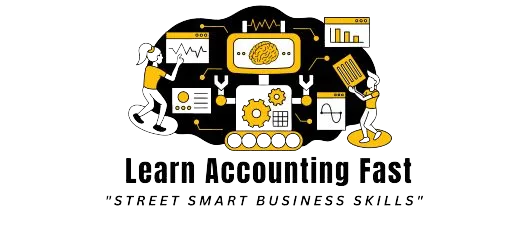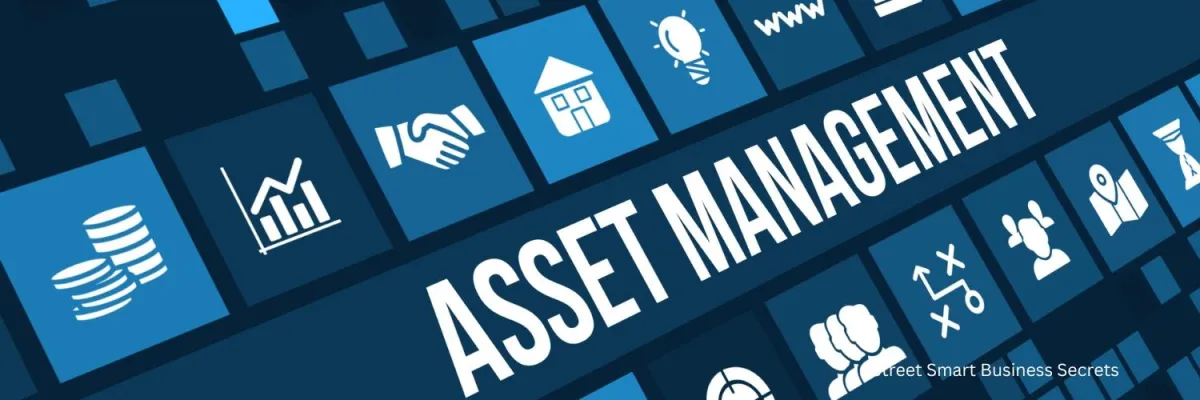What If Gold Backed Our Money Again
How Small Business Owners Can Prepare for a Gold Standard Economy
For most business owners, the way money works feels like a mystery.
It just is, you earn it, spend it, and try to keep more of it than you lose. But imagine waking up one day to find out our money is now backed by gold again.
This would be a huge shift—and if you're not ready, it could cost you big time.
Let’s break down what this means, how it affects your business, and what you can do now to stay ahead of the game.
THE PROBLEM:
What’s Broken With the Current System?
Right now, our money is “fiat”, that means it’s backed by trust, not something solid like gold.
Governments can print more when they need it, which sounds great, until inflation eats away your profits, your savings, and your asset values.
Think about this:
A Ute that cost $50,000 five years ago might now cost $75,000.
That’s not growth—it’s the shrinking power of your dollar.
A gold-backed system puts strict limits on how much money can be created.
It’s like putting a leash on inflation, but that leash also tugs back on easy credit and government spending.
Imagine you're a small business owner used to getting a $50,000 equipment loan approved quickly with low interest.
In a gold-backed system, banks would be more cautious, and credit would be tighter.
You might now face stricter loan conditions or even be declined, forcing you to rethink purchases and save more upfront.
This shift encourages smarter, more disciplined financial planning—rewarding businesses that prepare rather than rely on easy debt.
THE OPPORTUNITY:
Why a Gold Standard Could Actually Help Smart Business Owners
While it might feel scary at first, a return to the gold standard could actually bring:
More stable prices (less inflation)
Imagine you're running a landscaping business.
Each year, the cost of your equipment, fuel, and supplies rises 5–10% due to inflation.
In a gold-backed system, those annual price hikes slow down or even stop.
That means you can plan your pricing, payroll, and purchase orders with more certainty, helping you stay profitable and competitive without constantly raising your rates just to keep up.
Predictable Pricing
Creates Easier Planning & Stronger Business Stability
• Stronger long-term currency value.
Let’s say you run a steel fabrication workshop and you import specialty parts from overseas.
In today’s world, the value of the Australian dollar goes up and down often.
One month, those parts might cost you $3,000. The next, $3,500—just because of currency swings.
But in a gold-backed economy, the value of the dollar would likely be more stable. That means better cost control, less guesswork in your quotes, and a higher chance your profit margin stays solid.
Stable Currency Is Less Risk & Smarter Business Planning.
• Greater global trust in the Australian dollar
This creates opportunities for businesses that:
Export products or services (a stable dollar = more predictable international deals)
Say you're a small business exporting high-quality custom surfboards to Japan.
Right now, the exchange rate changes constantly, which makes it hard to set prices and keep your international buyers happy.
One month, your $1,200 board might cost them ¥120,000. Next month, it could cost ¥135,000 due to currency shifts.
In a gold-backed economy, the Australian dollar would be more stable, making it easier for your customers to plan and for you to offer consistent pricing.
Consistency builds trust and long-term repeat sales.
Save and invest wisely (your savings could actually grow in value)
Picture this—you’re a builder who puts aside $10,000 each year in a business savings account.
In today’s inflation-based world, that money loses buying power over time.
But in a gold-backed economy, where the dollar holds steady or even strengthens, that same $10,000 can buy more next year.
That means your money works harder without taking on risky investments.
Steady Value Creates Smarter Saving And Equals Safer Growth.
Manage costs tightly (inflation won’t wipe out your pricing power)
Let’s say you operate a mobile vehicle service and parts replacement business.
Right now, you might need to keep increasing your service prices every year just to cover the rising cost of fuel, parts, and labour.
In a gold-backed system, these cost spikes would slow down, letting you lock in rates, plan your margins better, and keep your clients happy with stable pricing.
Predictable Input Costs
Creates Stronger Profits Plus Better
Long-term Relationships.
THE SOLUTION:
How to Prepare Your Business Now
Let’s walk through the key changes—and what you can do about them.
1. Know Where Your Money Is Tied Up
What: In a gold-backed world, borrowing will get harder and more expensive.
For Example: Let’s say you're a contractor who regularly relies on short-term finance to buy materials upfront for jobs.
Under the current system, you might easily get a $20,000 line of credit with low interest from your bank.
But in a gold-backed world, that same bank would be more cautious, they can't just print more money, so they'd limit lending.
You may now need to provide more documentation, secure the loan with assets, or face higher rates.
This change forces business owners to become more strategic, only borrowing when absolutely necessary and focusing more on internal cash flow.
Why: Banks won’t have as much easy credit to hand out.
In a gold-backed system, banks are limited by the amount of gold reserves they hold.
This means they can’t just create money out of thin air.
For example, if you’re a panel beater wanting to expand and need a business loan, the bank might ask for more security or even turn you down, not because your business isn’t solid, but because they have fewer funds available to lend.
This makes access to capital more competitive and selective. Only better-prepared businesses will win.
How: Review your current debts, interest rates, and loan terms.
For instance, if you’re currently paying off a $100,000 business loan at 6% interest, calculate how that payment would change if interest rates climbed to 10%.
A monthly repayment of around $1,110 could jump to $1,320 or more. That’s over $2,500 extra per year—money that could be better used for marketing, hiring, or upgrading your tools.
By understanding this now, you can plan ahead, renegotiate terms, reduce your liabilities, or shift focus to faster-paying projects.
HOT TIP: Tools like MoneySmart.gov.au Loan Calculator can help you model repayments.
2. Boost Your Cash Flow Reserves
What: A gold standard economy rewards businesses that hold real value, especially in cash.
For example, imagine you're a small café owner. If you’ve saved $20,000 in your business account, that money doesn’t lose its value every year like it does with inflation.
In fact, it holds steady, or may even buy more next year.
That gives you the power to jump on opportunities, like buying a competitor's espresso machine at a discount, while others are scrambling for loans.
Having liquid cash = flexibility = faster business moves.
Why: Prices won’t rise quickly, so saving becomes powerful again.
For example, if you’re a tradesperson who sets aside $5,000 each quarter, that money holds its value year after year instead of shrinking.
In a fiat system, rising prices quietly eat away your savings.
But under a gold-backed economy, that same $5,000 can go further over time, letting you bulk-buy materials at discounted rates or hire extra help when needed.
How: Create a “buffer fund” to cover at least 3–6 months of operating costs.
For example, if your monthly expenses are $10,000, aim to build a savings buffer of $30,000 to $60,000.
This gives you breathing room if sales slow down or costs rise unexpectedly.
A café owner with three months' reserves could stay open and pay staff through a downturn, while others close their doors.
HOT TIP: Read: Cash Flow Management Tips
3. Invest in Productive Assets—Not Just Flashy One
What: A gold system rewards value creation, not hype or speculation.
For instance, imagine you're running a small welding and fabrication business.
In the current system, you might buy a vehicle just because it's expected to rise in value.
But in a gold-backed world, where money doesn’t inflate rapidly, speculative gains shrink.
Instead, investing in a new CNC plasma cutter that boosts your production capacity would bring real returns.
That asset generates income, saves time, and gives you a competitive edge.
Why: The days of flipping an asset just because prices are rising could end.
For example, someone might buy a used truck today hoping to resell it for a quick profit as prices keep rising.
But in a gold-backed economy, where inflation slows and speculative demand shrinks, that truck might not increase in value.
Instead, business owners will need to focus on buying assets that create income, like a trailer that increases job efficiency or a welder that cuts down build time.
Income-generating tools = smarter investment = sustainable business growth.
How: Focus on assets that bring real returns—tools, training, equipment—not just “status” purchases.
For example, if you're a tradie considering whether to attend a $2,000 industry training course or buy a flashy set of new rims for your Ute, choose the training.
That course could lead to higher-paying jobs, better skills, and a stronger reputation.
The rims might look good, but they won’t boost your income. Smart investments = stronger returns = long-term growth.
4. Learn to Read Financial Statements Like a Pro
What: In a tighter money system, the smartest operators will win.
For example, picture two electricians. One tracks every dollar, knows their margins, and keeps overhead low.
The other just assumes money will keep flowing and signs up for every shiny subscription or equipment lease.
In a gold-backed world, where credit is tight and prices don’t rise automatically, only the first business thrives.
Why: You’ll need to measure what matters—profit, cash flow, and return on investment.
For example, if you're a fencing contractor and don’t track your true costs, you might assume a $5,000 job is highly profitable.
But once you factor in material waste, travel time, subcontractor payments, and delays, your real profit might be just $800.
Accurate tracking helps you quote smarter, reduce waste, and grow with confidence.
Real insight = better pricing = higher profits.
How: Learn to spot red flags and golden opportunities in your financials.
For example, if you're reviewing your monthly income statement and notice that your vehicle repair costs have doubled compared to last quarter, that’s a red flag.
Digging deeper, you discover an older truck is constantly breaking down, costing more than it earns.
Replacing it with a newer, more efficient model is the golden opportunity.
Spotting these patterns helps you plug cash leaks and make better decisions.
5. Look at Global Trade Differently
What: A gold-backed dollar changes how Australia trades with the world.
For example, if you run a business that imports vehicle components from the U.S., today’s fiat currency fluctuations can cause huge swings in your costs, making it hard to plan and price confidently.
But in a gold-backed system, with the Australian dollar holding a more consistent value, your parts might cost the same month to month.
That stability means less guesswork and fewer price blowouts. Consistent currency = better planning = stronger global trade relationships.
Why: Our currency may gain trust internationally—but only if we’re financially disciplined.
For example, if Australia maintains strict fiscal discipline in a gold-backed system, it sends a strong signal to global investors and trade partners that our economy is stable and responsible.
Imagine you're exporting solar equipment to Europe—if those buyers trust the Australian dollar to hold steady, they're more likely to sign longer-term contracts with you.
Trusted Currency Creates Bigger deals & International Growth Opportunities.
How: If you import or export, monitor currency fluctuations more closely.
For example, if you’re bringing in vehicle parts from the US and selling them locally, wild swings in the exchange rate can make your margins unpredictable.
A gold-backed system would stabilise these rates, allowing you to quote prices with confidence, reduce risk, and negotiate better deals.
TAKEAWAY:
Be the Business That Wins When the Rules Change
A gold-backed economy may sound old-fashioned, but it could be the reset we need.
Your job now is to:
Tighten your cash flow.
Dump lazy assets.
Track the value your business really creates.
Learn to read your numbers, not guess them.
The future will always belong to the street-smart operator who plans ahead, like the tradie who builds up savings, tracks expenses, and invests in gear that pays for itself.
Not the ones who get caught off guard by tighter credit or rising costs.
Planning = power = peace of mind.
Want help getting started?
Visit LearnAccountingFast.com for step-by-step tools to build a million-dollar business with your eyes open.
Be the greatest you can be…
Join us, click the link below for short, sharp, simple video courses that give you confidence and street-smart business skills to simplify accounting and focus on growing your business to succeed.
Latest Posts
Master Prompts For
Financial Analysis
The Complete Small Business Guide to Financial Analysis: Formulas, Examples, and Tips.These are super-powerful questions you can ask an AI to help..
How To Solve Any Business
Problem With Ai
AI can help you solve all of these faster, smarter, and more affordably, if you know how. This guide will show you exactly how to do that.........
The Secret to Stress - Free Business Finances Envelope Budgeting
Welcome to the Envelope Budgeting Method the street-smart way to take control of your business cash without a finance degree or expensive software.
How to Stay Updated on AI Business Trends and Best Practices (2025 Guide)
Top Smart Ways to Stay Ahead
Here are the best ways to stay updated on AI trends and business practices....
What are the Best Ways to Solve Business Problems?
Structured problem-solving is like having a detailed map or GPS when you're lost. It guides you step-by-step, clearly showing the path to your destination. Here's how it helps...
Use AI Like a Pro
Smart Business Questions
Discover the smart, little-known tricks that top AI-savvy businesses use to get laser-accurate answers to money questions—AI in Business without being a tech genius.
Disclaimer: The content shared on this blog and in these videos is for informational and educational purposes only. Despite my 30 years of experience as a business owner, I am not a certified financial advisor, accountant, or legal professional. The insights and tips shared are based on personal experiences and should not be taken as professional financial or legal advice. For financial, legal, or professional advice, please consult with a certified professional in the respective field. I disclaim any liability or responsibility for actions taken based on any information found in this blog or these videos.
Copyright Learn Accounting Fast - All Rights Reserved 2025













Facebook
Instagram
X
LinkedIn
Youtube